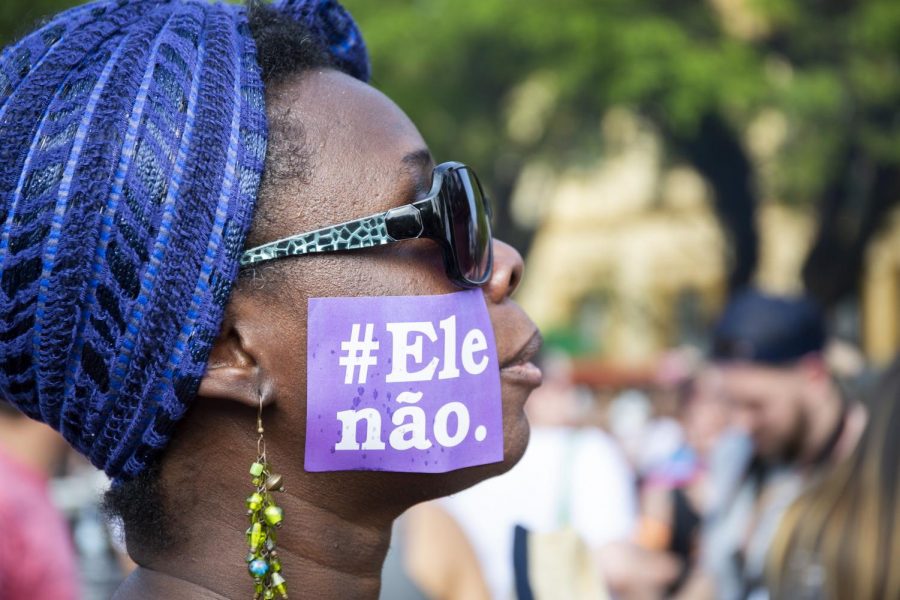Brazil’s Shift to the Far Right
The Federative Republic of Brazil is home to one of the most controversial democracies in the world. The 2018 presidential election was highly anticipated due to the fact that Brazil’s last president, Dilma Rousseff of the Workers’ Party, was impeached after her scandals involving the federal budget. Her temporary successor, former Vice President Michel Temer, was met with countless protests during his term, and many Brazilians were eager to welcome a different politician into office. Finally, after weeks of intense political campaigns that often turned violent, Brazil has elected its far-right candidate, Jair Bolsonaro, over its leftist candidate Fernando Haddad, as its next president.
The first round of the Brazil general presidential election was held on October 7, 2018. There was initially a total of thirteen candidates from various political parties. In the end, however, candidate Jair Bolsonaro from the Social Liberal Party, along with his running mate Hamilton Mourão, won the first round. With over 49 million votes, he had received nearly 46 percent of the total votes. Fernando Haddad of the Workers’ Party and running mate Manuela d’Avila, had won over 31 million votes, or 29 percent of the total votes. This qualified him for the second general election against candidate Bolsonaro. Both would move up in the next round of elections for the country.
This particular election has been closely followed by the rest of the world due to its shocking similarities to the United States’ 2016 presidential election. Much like the recent American election, Brazil’s presidential election has consequently divided the country in half with its two main candidates that are from opposite ends of the political spectrum. Far-right candidate Jair Bolsonaro, for example, has received a lot of criticism from liberals due to his extremely polarizing conservative views. Bolsonaro is a retired military officer turned politician that served as a representative of the state of Rio de Janeiro in the Brazilian Chamber of Deputies. During his time as a congressman, Bolsonaro became well-known for his strong support of national conservatism and his unrestrained disapproval of same-sex marriage, abortion, affirmative action, drug liberalization, immigration, and secularism. Unfortunately, due to his numerous misogynistic, racist, homophobic, and borderline fascist comments, his critics have compared him to U.S. President Donald Trump and Philippines President Rodrigo Duterte. For example, Brazil’s TV Globo reported that he “once told a congresswoman that she did not deserve to be raped because she was “very ugly.” He has also claimed numerous times in public that he would rather prefer to see his son “die in an accident” than have a family member that is homosexual. Bolsonaro has also been criticized by environmentalists around the world for his support of agribusiness in the Amazon rainforest, as well as his pledge to withdraw Brazil from the 2016 Paris climate agreement. They argue that deforestation in the Amazon rainforest, the biggest rainforest on the planet, for financial gain could contribute to catastrophic climate change in the future. Bolsonaro’s increasingly controversial comments eventually triggered a protest movement known as #EleNão, or “not him,” which mobilized thousands of protesters in the streets of Brazil during the election period. However, it seems as though Bolsonaro has more supporters than he has protesters. In a country where television advertisements play a huge part in determining the winner of an election, Bolsonaro has barely extended his campaign to this platform – only purchasing eight seconds of TV time in total. His dominance mainly lies in the realm of the internet, or more specifically, social media platforms such as Facebook, Twitter, and WhatsApp. Bolsonaro has over seven million followers on Facebook, and a report released in April discovered that seventy percent of the most politically active Twitter accounts in Brazil were supporters of Bolsonaro. His supporters also rule over and spread news on the platform Whatsapp, which is the most popular social media platform in Brazil by far, with participation from nearly 100 percent of Brazilian internet users.
Fernando Haddad, on the other hand, has been scrutinized due to the bad reputation of his political party. The Workers’ Party, which had controlled Brazil’s presidential office for over thirteen years, had recently been caught up in a large scale corruption scandal. Many politicians from this party, including former presidents Luiz Inacio Lula da Silva and Dilma Rousseff, were exposed for corruption and money laundering during “Operation Car Wash,” an ongoing criminal investigation to filter out dishonest lawmakers. Although Haddad advocated for policies that were decidedly more liberal and less extreme than Bolsonaro’s, many liberal Brazilians still opted to vote for Bolsonaro because of their continued distrust of the corrupt Workers’ Party. Haddad’s supporters have also been heavily criticized for the stabbing of candidate Bolsonaro on September 6, 2018, during a rally in Juiz de Fora. While both sides have participated in various politically motivated acts of hostility, this particular act of violence was especially condemned because it prevented candidate Bolsonaro from campaigning for several weeks. However, it did increase his support from Brazilians that are looking for a change against violent crimes.
The second and final round of the Brazilian general election took place on October 28, 2018. After an intense night of voting, candidate Jair Bolsonaro was declared the winner by the Supreme Electoral Tribunal once 94 percent of the votes were counted. After Bolsonaro’s win, thousands of his rejoicing supporters took to the streets of Rio de Janeiro to celebrate his victory. In his victory speech, Bolsonaro promised to be a “defender of freedom” that would protect all citizens who “follow their duties and respect the laws.” He stated, “The laws are for everyone, this is how it will be during our constitutional and democratic government.” His opponents, on the other hand, continue to voice concerns that his presidency could threaten human rights and ecological preservation in Brazil.






